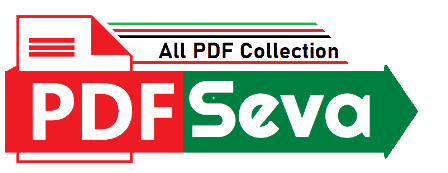
ad here
803 Download
1 year ago
in this comprehensive guide, we will delve into the world of OBD codes List, exploring their significance, types, and how they aid in troubleshooting automotive problems. The evolution of modern vehicles has witnessed a remarkable advancement in onboard technology. One such breakthrough is the On-Board Diagnostics (OBD) system, designed to monitor and diagnose the various components and systems within your car. OBD codes, also known as Diagnostic Trouble Codes (DTCs), play a crucial role in identifying and resolving issues. I
The OBD system was introduced in the 1980s as a standardized method to detect and report malfunctions in a vehicle’s emission control system. Today, the OBD-II system is prevalent, and mandated by regulations in many countries. When a problem occurs in your car, sensors collect data, and if any component deviates from the expected values, the OBD system generates a unique code. These codes provide a starting point for diagnosing and fixing the issue.
OBD-II codes consist of five characters, with a letter as the first character followed by four numbers. The letter represents the system of the vehicle affected by the problem. For instance:
The next two digits indicate the specific component or system within the affected area, while the last two digits provide additional information about the problem’s severity and source.
There are two main types of OBD codes:
a. Generic Codes (P0xxx)
Generic codes are standardized and common across all manufacturers. These codes offer a basic understanding of the issue, allowing mechanics and DIY enthusiasts to identify problems without manufacturer-specific details. Some common generic codes include:
b. Manufacturer-Specific Codes (P1xxx, P2xxx)
Manufacturer-specific codes provide additional details that are unique to a particular automaker. These codes help mechanics pinpoint issues with precision, but accessing them requires a dedicated diagnostic tool compatible with the specific vehicle brand.
To retrieve OBD codes, you’ll need an OBD-II scanner or code reader. These tools plug into the OBD port usually located under the dashboard, near the driver’s side. Once connected, the scanner communicates with the vehicle’s OBD system and displays the trouble codes. By interpreting the codes, mechanics can identify faulty components or systems.
Clearing OBD codes is essential after repairs to verify if the issue has been successfully resolved. However, it’s crucial to address the root cause of the problem before clearing the codes, as resetting them without addressing the underlying issue may lead to recurring problems.
a. P0300: Random/Multiple Cylinder Misfire Detected
This code indicates that the OBD system has detected misfires in multiple cylinders. Misfires can be caused by faulty ignition coils, spark plugs, fuel injectors, or issues with the fuel delivery system.
b. P0420: Catalyst System Efficiency Below Threshold
The P0420 code suggests that the catalytic converter is not functioning efficiently, usually due to a failing or damaged catalytic converter. This code can also be triggered by exhaust leaks or issues with oxygen sensors.
c. P0171: System Too Lean (Bank 1)
This code indicates that there is a lean air-fuel mixture in the engine’s Bank 1. It could be caused by a vacuum leak, faulty oxygen sensors, or a clogged fuel filter.
d. P0442: Evaporative Emission System Leak Detected (Small Leak)
The P0442 regulations mean that there is minimal leakage in the evaporative emission control system, which helps reduce fuel leakage into the atmosphere. A loose gas cap or damaged EVAP hoses are common culprits.
e. P0507: Idle Air Control System RPM Higher Than Expected
The P0507 code indicates that the idle speed of the engine is higher than the manufacturer’s specified RPM. It can be caused by a dirty throttle body, a faulty idle air control valve, or a vacuum leak.
f. P0715: Input/Turbine Speed Sensor Circuit Malfunction
This code is specific to the transmission and suggests a problem with the input/turbine speed sensor circuit. This can cause problems with transmission installation.
g. C1246: Master Cylinder Pressure Sensor Circuit
The C1246 code is related to the brake system and indicates a problem with the master cylinder pressure sensor circuit. This could compromise the vehicle’s braking performance.
h. B0020: Frontal Deployment Loop Stage 1
The B0020 code is related to the airbag system and indicates a problem with the frontal airbag deployment loop’s first stage. It requires immediate attention for the safety of the vehicle’s occupants.
OBD codes serve as a vital communication link between your vehicle and you, helping diagnose and resolve issues efficiently. By understanding these codes, car owners and mechanics can stay informed about their vehicles’ health, leading to timely maintenance and repairs. If you encounter any warning lights or suspect a problem with your car, don’t ignore it—act promptly and use the OBD codes to gain insights into the issue.
Regularly checking and understanding your OBD codes will empower you to take better care of your vehicle, ensuring a safer, more reliable, and more efficient driving experience. Remember, while OBD codes provide valuable insights, complex issues may still require the expertise of a qualified mechanic. So, next time you encounter an illuminated “Check Engine” light, don’t panic; instead, arm yourself with knowledge and unlock the potential of the OBD codes!
| PDF Name: | OBD-Codes-List |
| Author : | LatestPDF |
| File Size : | 29 kB |
| PDF View : | 41 Total |
| Downloads : | 📥 Free Downloads |
| Details : | Free PDF for Best High Quality OBD-Codes-List to Personalize Your Phone. |
| File Info: | This Page PDF Free Download, View, Read Online And Download / Print This File File At PDFSeva.com |
Copyright/DMCA: We DO NOT own any copyrights of this PDF File. This OBD Codes List PDF Free Download was either uploaded by our users @LatestPDF or it must be readily available on various places on public domains and in fair use format. as FREE download. Use For education proposal. If you want this OBD Codes List to be removed or if it is copyright infringement, do drop us an email at [email protected] and this will be taken down within 24 hours!
© PDFSeva.com : Official PDF Site : All rights reserved
